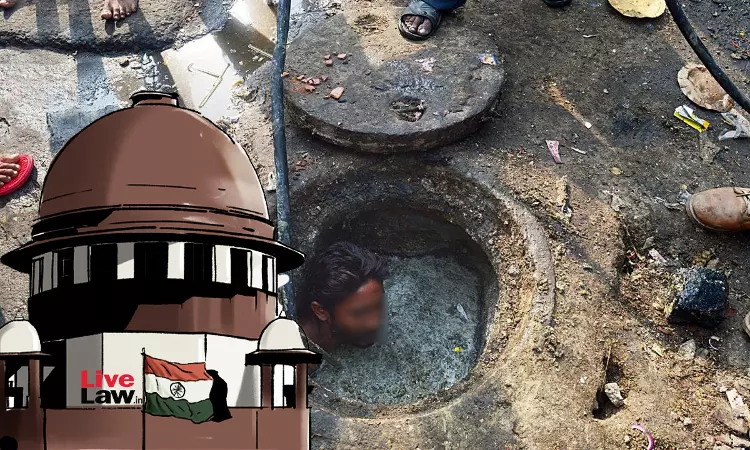Supreme Court Bans Manual Scavenging & Manual Sewer Cleaning In Six Metropolitan Cities
Gursimran Kaur Bakshi
29 Jan 2025 7:22 PM IST

Next Story
29 Jan 2025 7:22 PM IST
The Supreme Court today(January 29) passed directions banning manual scavenging and manual sewer cleaning in six metropolitan cities in a writ petition seeking the eradication of manual scavenging in India.In its order, it stated that in the comprehensive affidavit filed by the Union, there is "no clarity" on the eradication of manual scavenging and sewer cleaning. "We hereby intend to stop...
